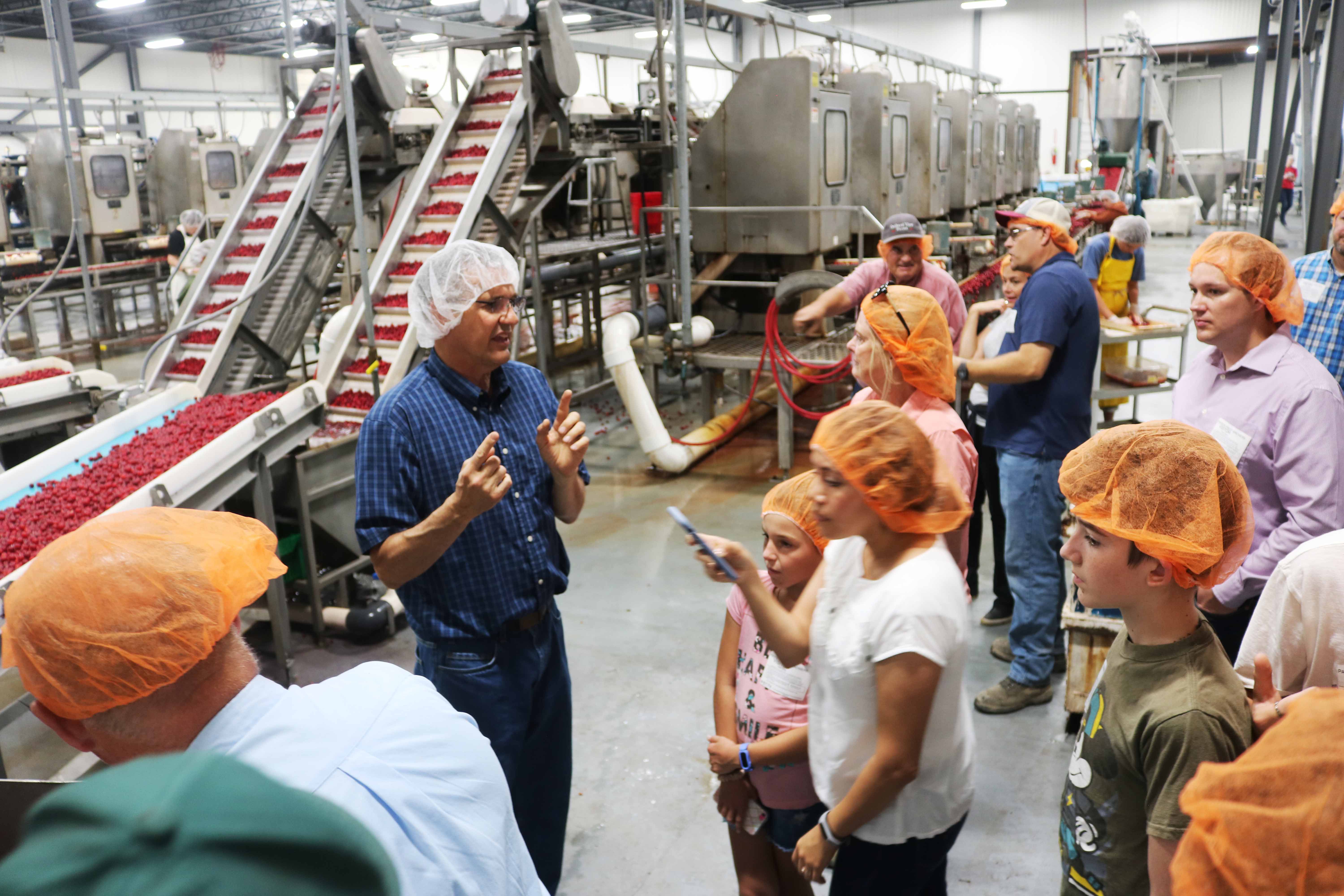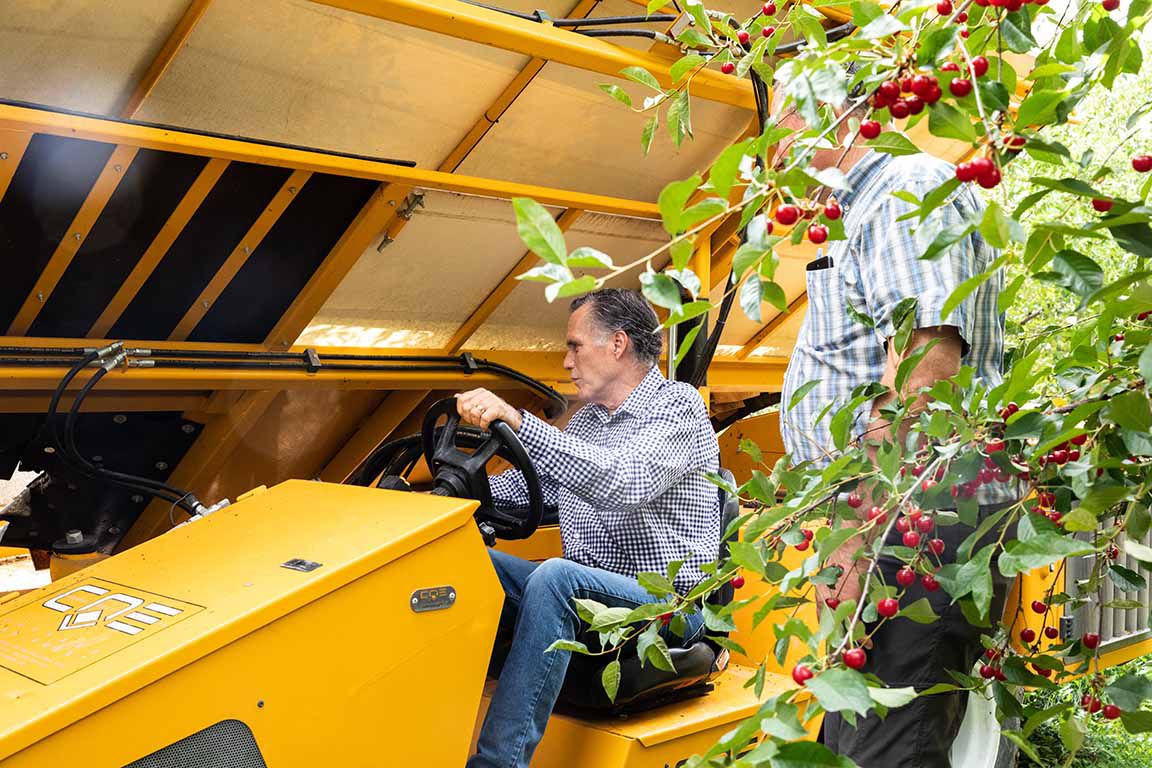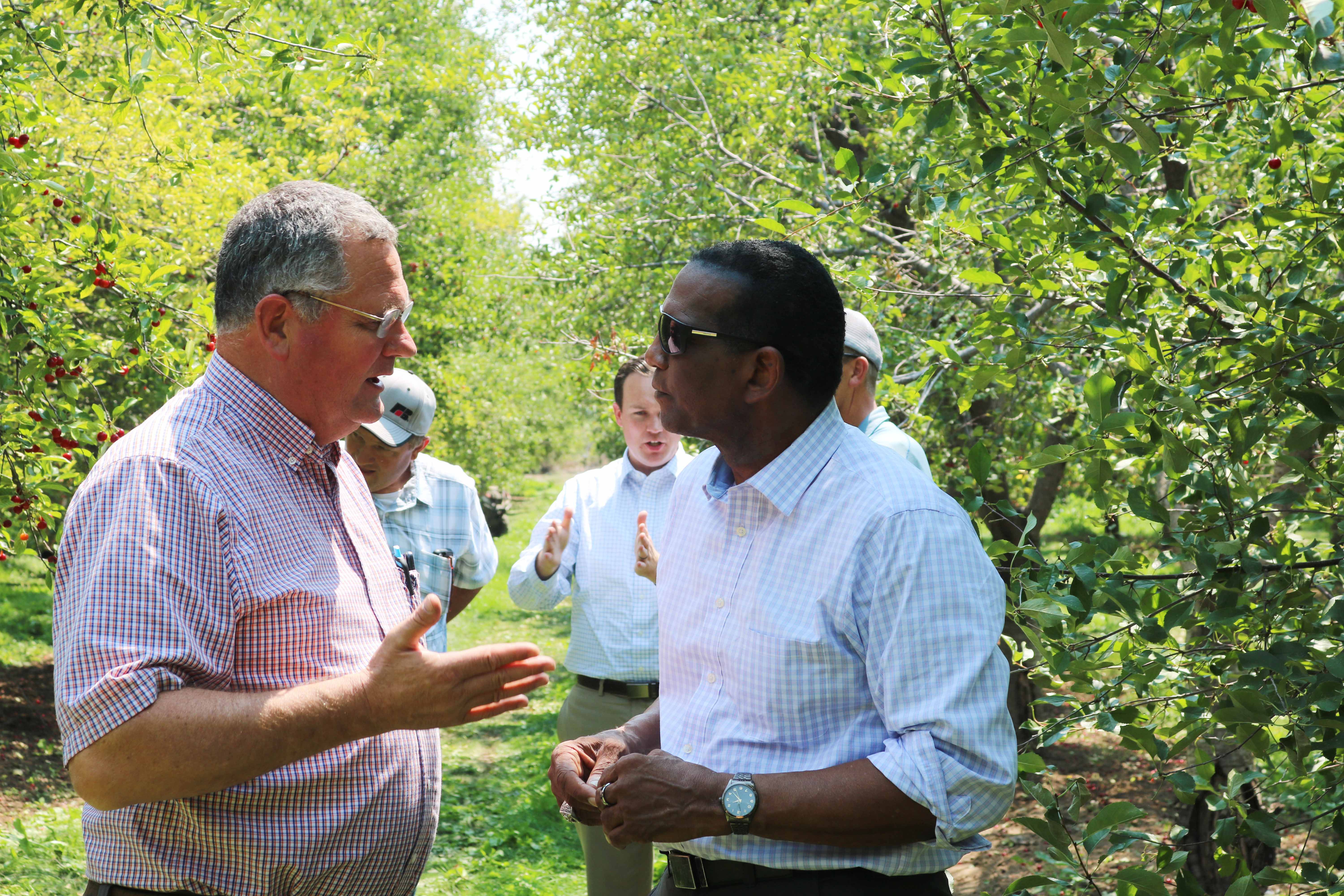Utah fruit farmers visit with congressional leaders on harvest tour
Published
8/4/2021
Harvest time is a busy and rewarding time for most farmers, but rarely is it a time where many want to step off the farm. Despite the busyness of the tart cherry harvest, farmers in southern Utah County did just that recently to visit with Senator Mitt Romney, Rep. Burgess Owens (District 4), and congressional staff from the offices of Senator Mike Lee and Congressman John Curtis (District 3). They highlighted the value of the the industry to the county and state, and brought up issues of concern they feel need to be addressed.
Also attending the tour where all three Utah County Commissioners. Ray Rowley, a tart cherry farmer in Santaquin helped put the tour together, along with other growers, processors and help from Utah Farm Bureau. Utah ranks 2nd in the nation in the production of tart cherries, which are used in desserts and increasingly are dried and juiced for nutritional benefits.
"The squeaky wheel gets the grease, and we wanted to make sure our elected officials and their staff understood our issues and contributions to our economy and community," Rowley said. "Most people don't understand all that goes into agriculture, and especially fruit farming, and so we wanted to let these people know who we are, that we appreciate what they do, and how they can help our industry stay successful."

Labor and the need for improvements in the current system was the number one issue growers brought up. This included the limitations of the H-2A program, such as the inability for field workers to also work inside processing facilities, the unpredictability and high cost of the Adverse Effect Wage Rate (AEWR), and how seemingly small changes in paperwork can lead to long delays in bringing in workers.
“Utah’s agricultural industry is a vital part of our economy. There is no doubt that our agricultural producers are facing great challenge with regard to a shortage of labor, current trade practices, and the historic drought. I appreciate the Utah Farm Bureau [and Utah County's fruit growers] setting up a tour of the cherry orchards and Payson Fruit Growers processing operation so I could get a better understanding of the needs of Utah’s cherry farmers," said Senator Mitt Romney. "Utah’s agricultural producers know their needs best—and the current process for getting temporary, legal workers into our state is taking too long and is costing too much. I will continue to advocate for states to have a greater voice on the federal visa distribution process so Utah has the workforce it needs to support our agricultural industry.”

Congressman Burgess Owens agreed with the need for congress to work to find ways to reduce burdens in agriculture, even with seemingly small corrections to laws and regulations.

Rep. Burgess Owens (right) visits with Doug Rowley of Mountainland Apples about concerns felt by fruit growers.
“The agriculture industry is experiencing labor shortages and an unreliable workforce, plus extreme drought conditions and increased operational costs. Agriculture in Utah is essential to our state's long-term success, and every farmer, rancher, and grower has my full support as we collectively search for solutions that protect the sustainability and success of this mission-critical industry.”Other issues brought up included the drought and improvements in water use by the fruit industry, the need for infrastructure improvements -- specifically water infrastructure, trade and USDA food programs.
In addition to talking about issues, the farmers wanted to give experiences for the leaders so they could understand a little of how the harvest is done. Guests were invited to sit in the cherry shaker to see how the crop is shaken from the tree and prepared for processing.
"I appreciate these folks took the time to come and see a little of what we do, and how they can play a role in keeping our farms economically sustainable," said Robert McMullin, another fruit farmer from Payson.
The event was successful in that it provided opportunities for lawmakers to experience some of the issues the farmers were facing, rather than getting lost in the numbers. This same pattern could apply to any other segment of agriculture -- giving lawmakers, consumers, school children, etc. experiences to connect with agriculture.
Want more news on this topic? Farm Bureau members may subscribe for a free email news service, featuring the farm and rural topics that interest them most!
